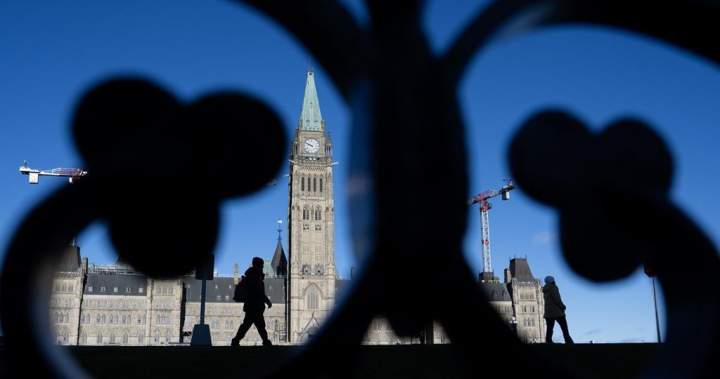The parliamentary budget officer said Thursday he expects the coming fall budget will reveal a sharp increase in Ottawa’s deficit that puts the government’s previous fiscal anchors in jeopardy.
Ottawa’s fiscal watchdog Jason Jacques now projects the federal government will post an annual deficit of $68.5 billion this year, up from $51.7 billion last year.
He said in a new report that he expects federal debt-to-GDP is no longer on a declining path over the medium term — a ratio that previously was a key fiscal anchor for the federal government.
The office’s updated fiscal and economic outlook offers parliamentarians a baseline estimate of the state of federal finances heading into the Liberals’ fall budget on Nov. 4.
The PBO’s update does not include plans to incrementally ramp up defence spending to meet the updated NATO benchmark of five per cent of GDP by 2035. It also doesn’t factor in Ottawa’s announced plans to reduce public service spending over the next three years.
But the report does account for some $115.1 billion in net new spending over five years announced by the government since the last fiscal update in December of last year.
The office said an economy weakened by Canada’s trade war with the United States is dragging down Ottawa’s tax revenue and pushing deficits higher as the Liberals boost capital spending.

Get daily National news
Get the day’s top news, political, economic, and current affairs headlines, delivered to your inbox once a day.
The PBO predicts real GDP growth of 1.2 per cent in 2025 and 1.3 per cent in 2026, down from 1.7 per cent and 1.5 per cent, respectively, in the office’s March outlook.
Nominal GDP, a measure of the federal government’s tax base, is projected to be $12.9 billion lower on average from 2025 to 2029, due to the lasting effect of tariffs.
The PBO says that with lower revenues and higher government spending, budget deficits will be $26.6 billion higher each year on average through to 2029-30 than the projections in its March outlook.
The PBO expects deficits to decline slightly but to remain close to $60 billion annually over the forecast horizon.
Jacques has expressed doubts about whether Ottawa still has its “fiscal anchors” — benchmark metrics that show the federal government is responsibly managing its debt.
The former Liberal government under prime minister Justin Trudeau used a declining debt-to-GDP ratio and cap on the deficit of one per cent of GDP as fiscal anchors.
The PBO says debt-to-GDP ratio is no longer on a downward path and will rise to 43 per cent over the medium term from 41.7 per cent last year, as deficits routinely top one per cent of GDP.
Prime Minister Mark Carney has insisted the federal government does still have fiscal anchors.
Finance Minister François-Philippe Champagne told The Canadian Press in an interview last week that the Liberals’ coming budget will show a decline in the debt-to-GDP ratio and include plans to balance the operating budget in three years, as the Liberals promised during the election campaign.
Jacques was named parliamentary budget officer on a six-month interim basis earlier this month, before the House of Commons began its fall sitting.
A permanent appointment must be approved by the House, and the Conservative party has pushed to keep Jacques in the role.
Jacques was scheduled to appear at the Commons committee on government operations and estimates Thursday to answer MPs’ questions.
Read the full article here

